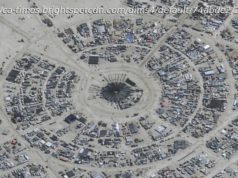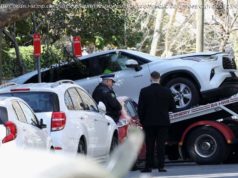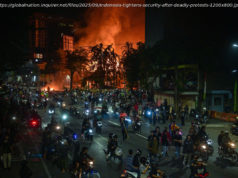President Trump was initially reticent to link the death of Jamal Khashoggi to the Saudi government. That now appears to be changing.
In the nearly three weeks since Jamal Khashoggi walked into a Saudi consulate in Istanbul and never came out, the story of what happened to him has emerged only slowly, through leaks and rumor, accusations and denials.
By the time the Saudis took responsibility over the weekend, many had grown convinced that he was dead—but exactly how remained unclear and contested between the Saudis, who claimed it was an accident, and the Turks, who accused them of a deliberate assassination.
President Trump and his administration have consistently said they will wait for the results of any investigation, and for details to emerge. Still, the president’s characterization of the incident has changed in recent days.
Read: Understanding the Jamal Khashoggi Case and Its Consequences
Nearly two weeks after Khashoggi’s disappearance, with the Saudis continuing to deny involvement, a bipartisan clamor was growing in Washington for Saudi Arabia to face consequences.
A group of lawmakers from both parties had called for sanctions; the Republican Senator Marco Rubio had gone on “Meet the Press” to say that arms sales could be at stake.
On Oct. 15th, fresh off a phone call with Saudi Arabia’s King Salman, Trump told reporters that the king had denied “any knowledge of” what had happened to Jamal Khashoggi, who the president emphasized was a Saudi citizen. “It sounded to me like maybe these could have been rogue killers. Who knows?” He dispatched his secretary of state, Mike Pompeo, to the kingdom.
“We’re going to try getting to the bottom of it very soon, but his was a flat denial,” the president said.
Read: The End of American Lip Service to Human Rights
Soon after Senator Lindsey Graham suggested Washington’s relationship with Saudi Arabia should be reevaluated, the Associated Press asked the president in an interview whether he found the kingdom’s monarch and crown prince to be trustworthy.
Trump repeated his insistence that his administration needed to wait for more information before reaching a judgement. But then he drew a connection between the Khashoggi case and the rancorous Supreme Court confirmation for Justice Brett Kavanaugh.
„You know, here we go again with, you know, you’re guilty until proven innocent,” he said. “I don’t like that. We just went through that with Justice Kavanaugh. And he was innocent all the way.“
Read: Why the U. S. Can’t Quit Saudi Arabia
With Mike Pompeo back from Riyadh in Washington, where he briefed the president, a reporter asked Trump whether he thought Khashoggi was dead.
The president responded, “It certainly looks that way to me.” As for consequences: “It will have to be very severe. I mean it’s bad, bad stuff.”
Pompeo, who during his trip had been photographed smiling with Crown Prince Mohammed bin Salman, told reporters outside the White House that he had asked Trump to give the Saudis a few more days to complete a promised investigation. The crown prince has been accused of direct involvement in the plot, but denies any such link.
Read: The U. S. Loved the Saudi Crown Prince. Not Anymore.
Seventeen days after Khashoggi’s disappearance, the Saudi Foreign Ministry tweeted a statement that the journalist had been killed in a fistfight there, and that it had fired five officials and arrested 18 other people.
Asked by reporters if he considered their explanation credible, Trump said “I do,” but then seemed to backtrack; “I mean, it’s—again, it’s early. We haven’t finished our review or investigation.”
He declared the Saudi arrests a “good first step” and the kingdom a “great ally” but said that “what happened is unacceptable.”
Turkish President Recep Tayyip Erdogan started the day giving a scathing speech saying the Saudis had planned Khashoggi’s “savage” murder, contra Saudi claims it was an accident. Hours later, photos circulated of Khashoggi’s sons visiting the crown prince.
By the time he was asked about the case at the White House Tuesday afternoon, Trump appeared to have lost his patience.
“They had a very bad original concept, it was carried out poorly and the cover up was the worst in the history of cover ups,” Trump told reporters. “They had the worst cover up ever.”
He urged Congress to find a bipartisan solution, but once again discouraged stopping arms sales. “We do that, we’re just hurting ourselves,” he said.






